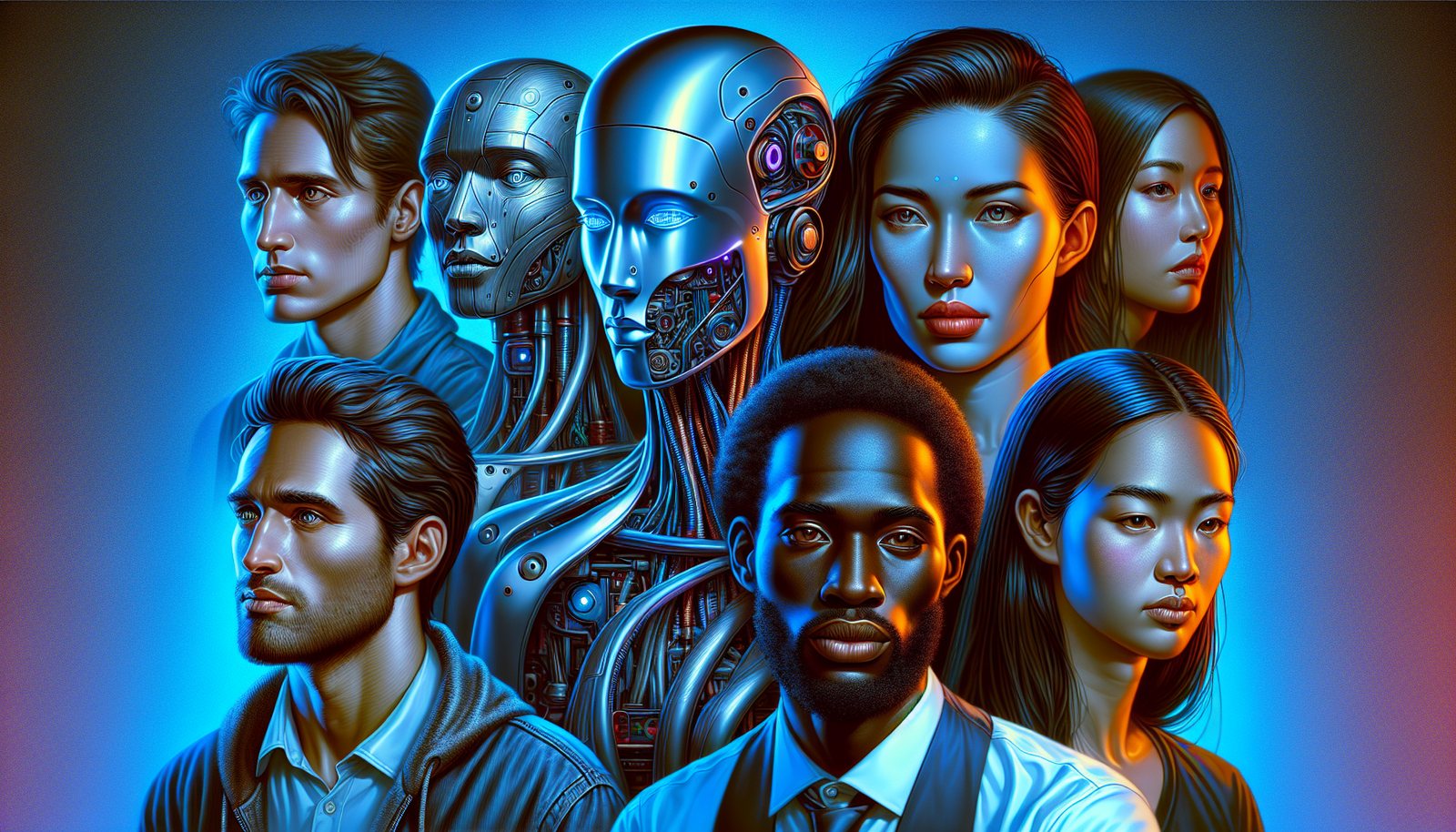The indifference of artificial intelligence towards *human emotions* raises fundamental questions. A clear dichotomy emerges between the *cold rationality* of machines and the warmth of human feelings. The paradox unfolds: *emotional beings navigate* a world dominated by a technology that is often apathetic. What consequences arise from this unique relationship, where empathy clashes with algorithmic indifference? The ethical and psychological stakes warrant particular attention in light of this inexorable evolution.
The coldness of artificial intelligence
The rapid advances in artificial intelligence raise major questions about its impact on human nature. The emergence of machines capable of simulating emotional behaviors offers a seductive facade. However, their inability to genuinely feel emotions creates a troubling paradox. The manifest indifference of these technologies reduces the human dimension to a mere data point to be manipulated.
The contrast between humanity and machine
Humans are, by nature, creatures concerned with their emotions. Love, anger, joy, and sadness shape their interactions. In contrast, AI can only imitate these emotions. While humans truly feel, AI is satisfied with a superficial recognition of feelings. This dichotomy raises inevitable tensions in the human-machine relationship.
Consequences of technological indifference
The consequences of this technological indifference are becoming increasingly concerning. In the United Kingdom, researchers report that AI teams often lack empathy in decision-making. A lack of emotional understanding can lead to clinical decisions that are sometimes harmful. Thus, patients may receive care detached from the human realities they experience.
The human being faced with the ethical issue
The ethics of integrating AI into our lives are being questioned. How can we integrate systems that feel nothing into environments where emotional understanding is essential? The growing use of these technologies merits deep reflections on their place in daily life. A debate about the right to authentic interaction thus appears to be a necessity.
The challenge of emotional intelligence against AI
Hope lies in the emergence of solutions that merge emotional intelligence and artificial intelligence. Innovative projects attempt to develop AI capable of building emotional bridges between machines and users. The goal is to create environments where humans and machines can interact more harmoniously. This raises the question of a new ethical framework where humans would retain their central role.
Human interactions in the metaverse
With the emergence of virtual worlds, the notion of human interaction is undergoing new transformations. The development of the metaverse raises questions about how human emotion can be translated into these spaces. Companies are exploring how users’ emotions could influence their immersive experience. The possibility of integrating emotional intelligence into virtual environments could thus change our relationships.
Social and cultural ramifications
This entire technological evolution is not without consequences for individuals. Societies risk facing an abyss of dehumanization. With precise surveillance and control systems, a loss of intimacy and mutual understanding seems inevitable. If such a trend continues, the human dimension could be altered, rendering interactions superficial and transactional.
Examples of successes and failures
Many companies are investing colossal amounts in AI projects that promise to revolutionize the market. However, some initiatives result in resounding failures. For example, the development of autonomous vehicles capable of understanding the emotional needs of passengers remains largely unachieved. Despite the technology at hand, understanding human emotion remains a chasm to be crossed.
The future of relationships between humans and machines
On the brink of a future increasingly governed by AI, it becomes essential to question our fundamental values. What place does society wish to give to emotion in this technological landscape? The rise of artificial intelligences prompts a reevaluation of fundamental human relationships. Confronting this indifference and refusing the trivialization of emotions requires collective engagement.
Frequently asked questions
What is emotional intelligence and how does it differ from artificial intelligence?
Emotional intelligence refers to the ability to recognize, understand, and manage one’s own emotions as well as those of others. In contrast, artificial intelligence, while it can identify and mimic emotions, does not feel them and remains indifferent to human emotional experiences.
How can the indifference of AI affect our emotional interactions?
The indifference of AI can create emotional distance between individuals and machines, making interactions less human and more mechanical. It can also affect how people express their emotions, as they may become more reserved in the presence of unresponsive AI.
Are users’ emotional behaviors influenced by interaction with AI?
Yes, interactions with AI systems can influence users’ emotional behaviors. Individuals’ emotional responses may vary depending on how AI interacts with them, particularly if it responds empathetically or without emotion.
What are the ethical implications of using AI in emotional contexts?
The ethical implications include the risk of manipulating human emotions, dehumanizing interactions, and neglecting the emotional needs of users, which raises concerns about the responsibility of AI designers towards users.
Is it possible for AI to develop a form of emotional intelligence in the future?
While AI can be programmed to simulate emotional behaviors, it cannot develop true emotional intelligence, as it does not feel emotions. Technological advances may improve AI’s understanding and response to human emotions, but this does not replace real human empathy.
How can companies integrate emotional intelligence into AI systems?
Companies can integrate emotional intelligence by programming AIs capable of recognizing users’ emotions and responding appropriately. This may include machine learning algorithms that analyze facial expressions, tone of voice, or body language.
Are there risks associated with over-reliance on AI for emotional support?
Yes, excessive reliance on AI for emotional support can lead to social isolation, a loss of interpersonal skills, and a devaluation of authentic human relationships, making individuals more vulnerable in the absence of real human connection.
What solutions can be implemented to minimize the indifference of AI towards human emotions?
To reduce AI’s indifference, it is essential to develop AI systems that integrate emotional dimensions, encourage ethical design practices, and promote awareness of AI’s impacts on human emotions, in order to improve interactions between humans and machines.






